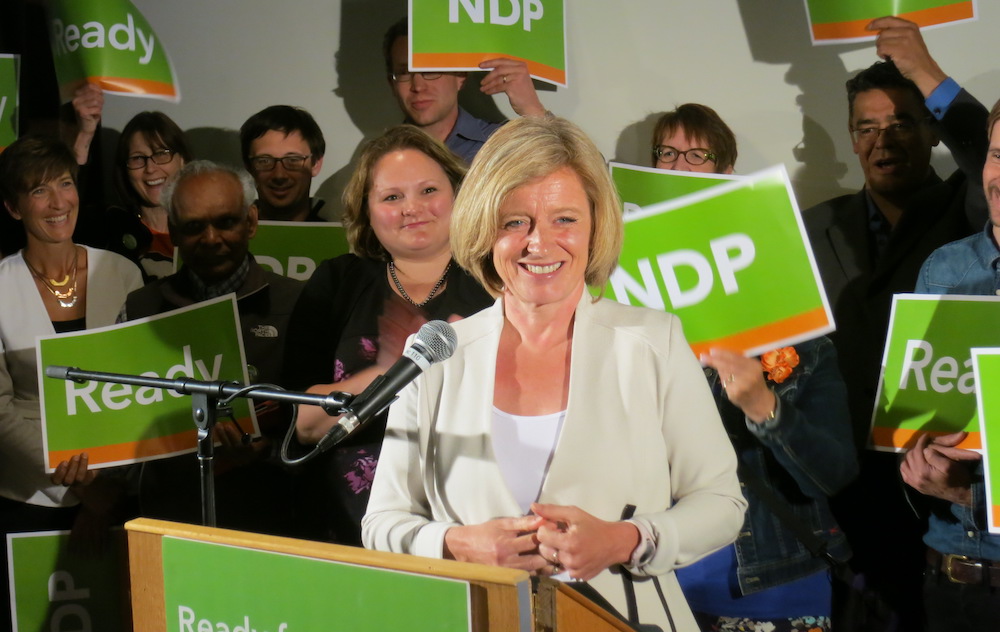Alberta’s so-called turn-off-the-taps law was pretty obviously unconstitutional when Rachel Notley’s New Democratic Party passed it, and it continued to be unconstitutional when Jason Kenney’s United Conservative Party had it proclaimed into law.
So yesterday’s ruling from the Federal Court of Canada granting British Columbia a temporary injunction blocking application of the risibly named Preserving Canada’s Economic Prosperity Act while the courts make its unconstitutionality official should surprise no one.
The decision will come as a bitter disappointment to the UCP’s credulous base, but even Kenney and Energy Minister Sonya Savage dropped their usual bluster and didn’t sound all that shocked or appalled by what their lawyers must have told them Justice Sebastien Grammond was likely to say. Leastways, they obviously had their talking points in place.
David Eby, B.C.’s attorney general, called the injunction a “big win” because it means the province no longer has Alberta’s unconstitutional “significant threat to our economy and our people” in play, which is a fair assessment under the circumstances.
Arguably, the law allowing Alberta to blockade shipments of fuel from refineries here to force B.C.’s government to ignore the concerns of its own voters and knuckle under to Alberta’s demands for a pipeline was a moral and political failure by the NDP.
Democracy depends on a consensus not to abuse power, and drafting legislation known in advance to violate the nation’s Constitution, putting that consensus at risk, amounts to moral failure. Hoping the belligerent attitude demanded by Kenney’s Conservatives would persuade die-hard right-wingers to grant the NDP another term in office in gratitude for legislation that horrified many of its most loyal supporters was foolhardy.
That said, at least the NDP had a plan for this legislation, albeit a cynical one. They’d fail to proclaim it into law, and argue it couldn’t be challenged in court before it became the law of the land.
Notwithstanding Kenney’s promise to his supporters to undo everything the NDP did in office, he obviously liked the nasty tone of the PCEPA, ignored the outgoing NDP’s warnings, and had it proclaimed into law soon after coming to power in last April’s provincial election.
Notley now mocks Kenney for this blunder, comparing his decision to proclaim the law to blowing up a missile on the launch pad. “This is classic Jason Kenney. It’s all about politics, it’s not about getting the job done,” the Edmonton Journal quoted her saying.
For his part, Kenney responded lamely that, “I assume that former premier Notley got advice that this was compliant with the Constitution.” The rest of us assume that the government’s lawyers told him otherwise, but whatever.
The last time something like this happened, Alison Redford was the Progressive Conservative premier of Alberta and the law her government had passed was an effort to suppress the fundamental free-speech rights of anyone who dared argue an illegal strike was an appropriate response to her government’s plan to terminate the legal arbitration rights of public employees.
That was in 2013, and the Public Sector Services Continuation Act, was patently unconstitutional. Redford, who like Notley is a capable lawyer, adopted the same strategy — to pass the law but not proclaim it.
What happened then is rich in irony, given what has happened since. The Wildrose Party — now the base of Kenney’s UCP — took the side of the public sector unions most impacted by the law.
“The Wildrose Party believes strongly in the rule of law and upholding contracts, including collective bargaining agreements,” it said in a pious statement. The party insisted this was a position of principle, not at all cynical.
Paula Simons, then a political columnist for the Edmonton Journal and now a member of the Senate of Canada, observed dryly in her column that Alberta Union of Provincial Employees president Guy Smith and Wildrose leader Danielle Smith “make unlikely bedfellows. But in the cold of Alberta politics, sometimes you need to snuggle up with unexpected allies under the covers.” I imagine neither Ms. Smith nor Mr. Smith appreciated Simons’ metaphor.
Alas, last June, when Kenney’s UCP government passed and proclaimed the Public Sector Wage Arbitration Deferral Act, which suspends the legal arbitration rights of public employees, there was not a peep of protest or concern about the rule of law from any of those previously principled Wildrosers.
Soon after Jim Prentice became PC premier in 2014, his government passed legislation repealing the Redford-era law, a political gambit every bit as effective as Notley’s adoption of the turn-off-the-taps strategy.
Nevertheless, while he lost the 2015 election to the NDP, the late premier Prentice at least deserves credit for doing the right thing to eliminate Redford’s unconstitutional bill.
Kenney, again ironically, appears determined to stand by what is arguably Notley’s worst piece of legislation while tearing up the many good laws her government passed.
How to deal with influential bloggers, a lesson from history
The Paula Simons column quoted above was published by the Edmonton Journal on December 3, 2013. It ran on page 5 of the paper and, unfortunately, is no longer available except through online databases.
In it, Simons summarized the argument of a law professor on the government’s strategy behind the Public Sector Wage Arbitration Deferral Act. “In his analysis,” she wrote, “the new legislation, with its pointed emphasis on stiff fines for advocating an illegal strike, is designed to intimidate high-profile, labour-affiliated bloggers, such as Dave Climenhaga and Dave Cournoyer.” (Emphasis added.)
If only this were true!
Readers will understand, despite my skepticism about this interpretation of the Redford government’s motives, why Simons is my favourite Canadian Senator, and is likely ever to remain so.
David Climenhaga, author of the Alberta Diary blog, is a journalist, author, journalism teacher, poet and trade union communicator who has worked in senior writing and editing positions with The Globe and Mail and the Calgary Herald. This post also appears on David Climenhaga’s blog, AlbertaPolitics.ca.
Image: David J. Climenhaga




